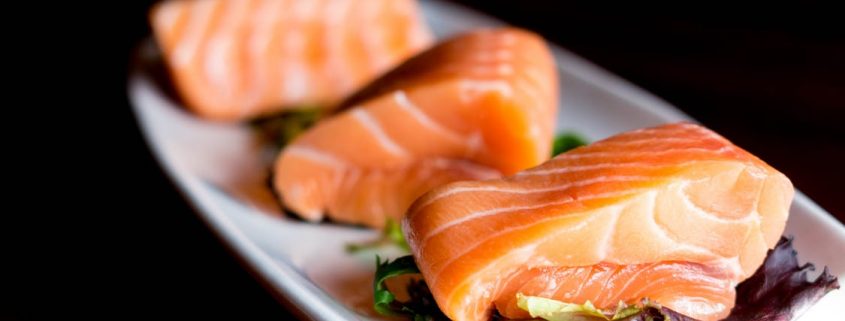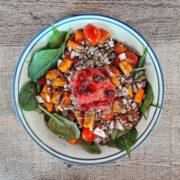5 Dietitian-approved Foods To Fight Inflammation
By Sally Shi-po POON (Registered Dietitian)
Inflammation can be a long-term physiologic response to environmental toxins, infection, poor nutrition, stress, and aging. Chronic inflammation causes damage to body cells and eventually lead to diseases such as cancers, heart disease, diabetes, arthritis, depression, and Alzheimer’s disease. Studies have found that some nutrients from natural foods are safe and effective to help combat inflammation in the body. Here are 5 anti-inflammatory foods that I suggest:
1. Salmon
Salmon is an excellent source of omega-3 fatty acids that have been shown to have anti-inflammatory properties. A study found women who ate more omega-3 had lower levels of inflammatory markers in the blood reflecting lower levels of inflammation, which might explain in part the effects of these fatty acids in preventing cardiovascular disease. The American Heart Association recommends eating fish (particularly fatty fish) at least two servings a week, each serving is 3.5 ounces cooked. Other fatty fish like albacore tuna, herring, lake trout, mackerel, and sardines are also high in omega-3 fatty acids.
2. Beans
Beans are rich in dietary fibre, antioxidants, and anti-inflammatory compounds, which help lower the levels of C-reactive protein (CRP), one of the key markers of inflammation in the blood. Studies have found that a high fibre diet helps to reduce CRP levels. Fruits, vegetables, and whole grains also contain plenty of dietary fibre and antioxidants, which can fight inflammation.
3. Walnuts
Walnuts are packed with omega-3 fatty acids, dietary fibre, and phytonutrients that can protect against inflammation and promote healthy aging. Although nuts and seeds have anti-inflammatory benefits, they are high in calories so be mindful of portion sizes. Whilst the number of nuts per serving varies by type, a typical serving is 1 ounce (about 1/4 cup) or a small handful. One ounce of English Walnuts equals 14 halves.
4. Extra virgin olive oil
Extra virgin olive oil is the fresh juice that is squeezed directly from the olive fruit, it is credited as being one of the healthful components of the Mediterranean diet. Extra virgin olive oil is not refined or extracted using chemicals or heat, leaving it high in natural antioxidants, such as oleocanthal, which have significant anti-inflammatory properties. Although olive oil has lots of health benefits and tastes good in salad or pasta, it is energy dense so eating too much can cause weight gain. The healthy eating guideline recommends using 4 to 6 teaspoons of oil in your cooking or salad dressing a day.
5. Turmeric
Turmeric is very popular in grocery stores lately due to its promising anti-inflammatory benefit. Curcumin is the key active compound in turmeric but its absorption is poor. Consuming curcumin with some black pepper and healthy oils can enhance its absorption. It goes well with grains, beans, vegetables and white meats; and can enhance the flavour of soups and stews.
Extra tips on anti-inflammatory eating:
Foods that contribute to inflammation are the same ones generally considered bad for our health, including deep-fried foods, sugar-sweetened drinks, refined carbohydrates (such as white bread and pastries), red meat and processed meats. In general, an anti-inflammatory diet means your plate is dominated by a variety of colourful fruits, vegetables, whole grains, fish, nuts and healthy oils.
Sally’s Nutrition Blog @ Hong Kong Tatler: https://hk.asiatatler.com/life/5-dietitian-approved-foods-to-fight-inflammation










Leave a Reply
Want to join the discussion?Feel free to contribute!